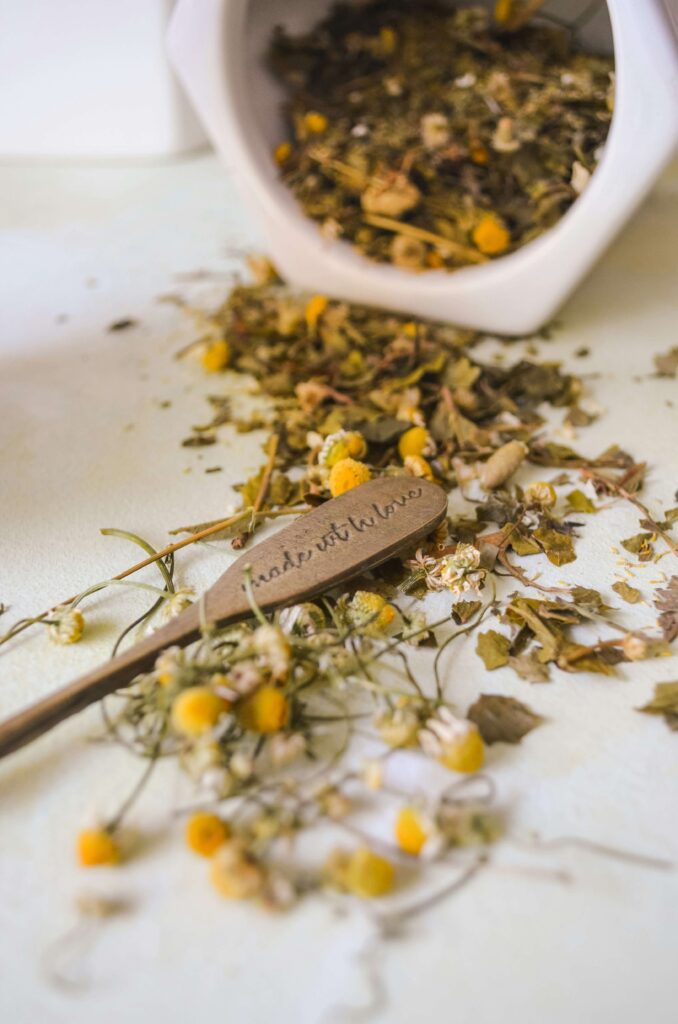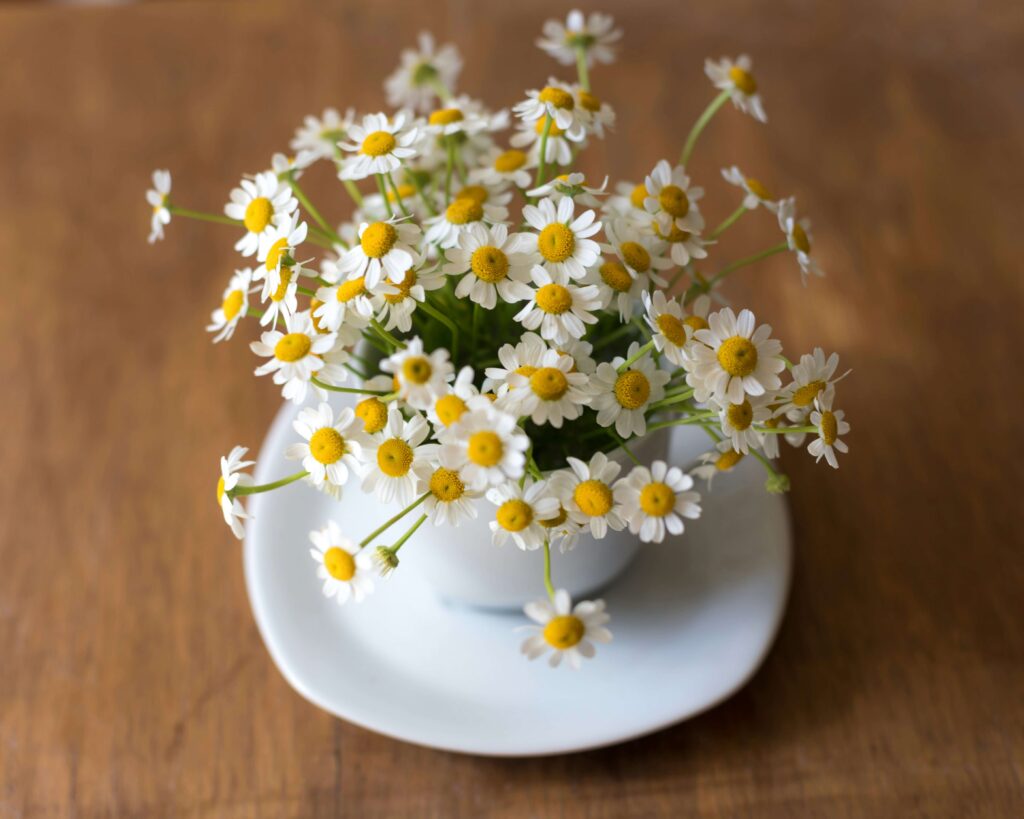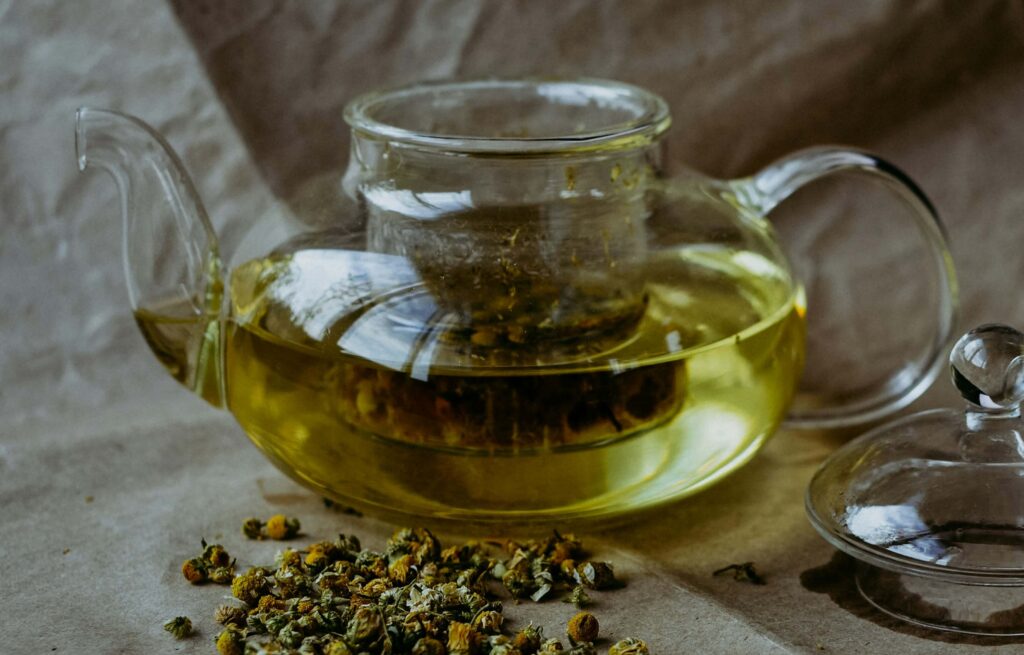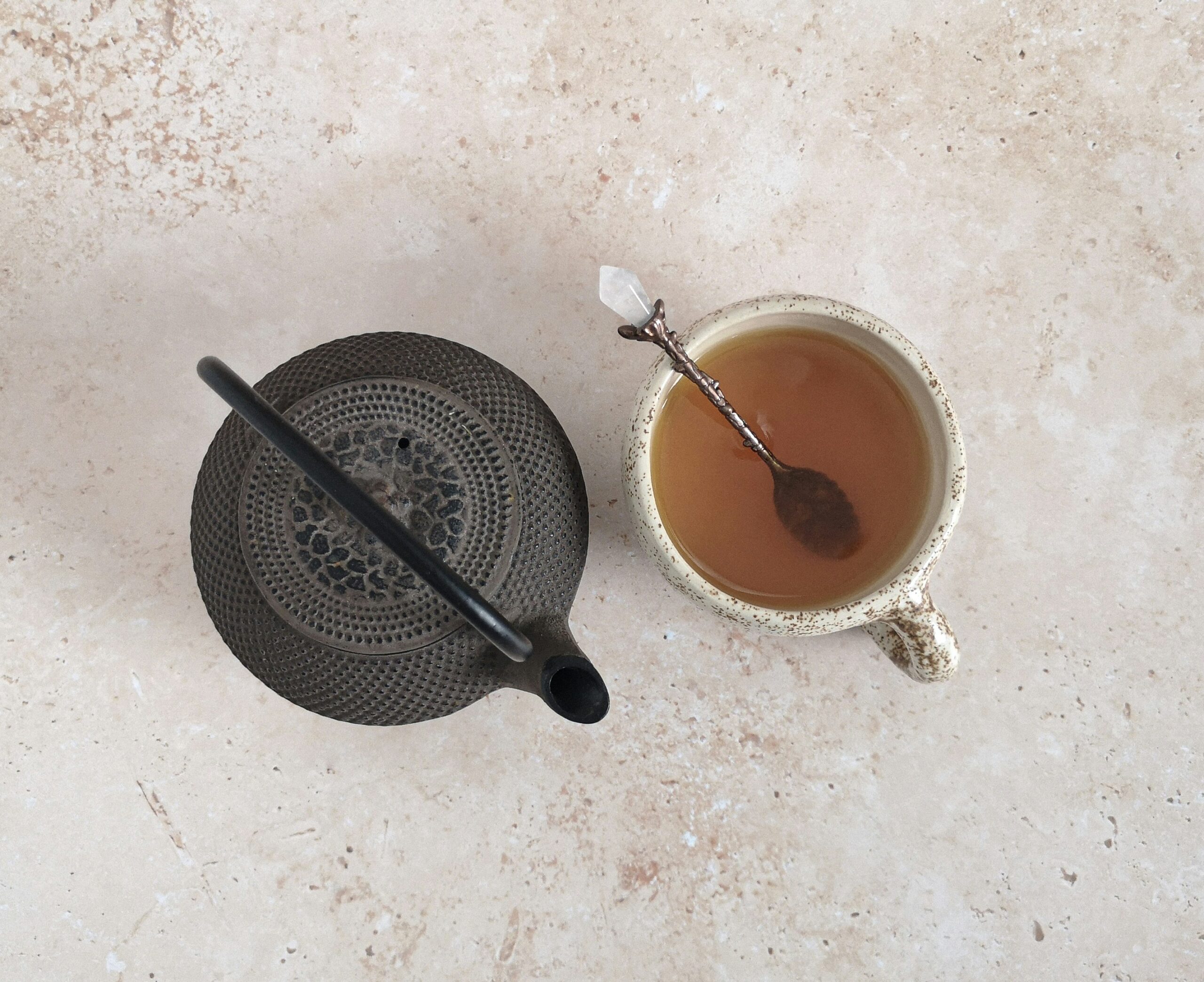

So you want to know does Chamomile Tea Break a Fast? When you’re fasting, particularly during an intermittent fast, you want to ensure that you’re adhering to the rules to achieve the desired benefits. This often leads to the question of what beverages can be consumed without breaking the fast. Chamomile tea, with its soothing qualities and caffeine-free nature, brings forth a common inquiry for fasting enthusiasts: does it interfere with the fasting state?
Understanding how different beverages impact your fasting period is crucial. While water is always recommended, incorporating herbal teas like chamomile might provide a comforting alternative without disrupting your fast. It’s important to consider not just the calorie content, but also the effect on insulin and blood sugar levels, as well as the overall health benefits you might gain from such herbal infusions during a fasting period.
Key Takeaways
- Chamomile tea is a caffeine-free choice that does not typically break a fast.
- It’s essential to consider a beverage’s impact on blood sugar and insulin during a fast.
- Herbal teas like chamomile can offer health benefits without disrupting the fasting process.
So what are we talking about today?
- Understanding Fasting and Beverage Intake
- Chamomile Tea and Fasting Impacts
- Health Benefits Related to Fasting
- Alternatives and Comparisons
- Practical Tips for Fasting with Chamomile Tea
- Frequently Asked Questions
Understanding Fasting and Beverage Intake
As you explore the world of intermittent fasting, it’s vital to understand how beverages fit into your fasting plan, especially when determining whether something like chamomile tea could affect your fasting state.

Defining a Fast
A fast typically involves abstaining from all or some foods and drinks for a set period. Intermittent fasting, for instance, includes cycles between periods of eating and fasting, like the popular time restricted 16:8 method where you eat during an eight-hour window and fast for the remaining 16 hours. When you’re on a water fast, you’ll consume only water and refrain from any other liquids or solids.
Beverages and Fasting
Now, when considering beverages and fasting, the goal is to maintain a calorie-free state to preserve the benefits of your fast. Most experts agree that water, being critical for hydration, is essential and permissible during fasting. However, the introduction of other beverages becomes a grey area.
- Sweeteners: Any beverage with sweeteners, even if they’re low or zero-calorie, could potentially disrupt your fast by causing an insulin response. This might be tricky for those that have a sweet tooth! So try to stick to things like unsweetened tea or if you can find calorie-free sweeteners.
- Caffeine: Drinks containing caffeine like coffee or tea could be permissible, but it’s best to consume them black and without sweeteners.
- Calories: It’s pivotal that any beverages you consume during your fasting period are very low in calories. The consensus among many fasting advocates is that less than 50 calories will not significantly disrupt a fast.
Taking chamomile tea, for example, it’s generally regarded as a fasting-friendly drink assuming it’s served without sweeteners or additives, as it contains minimal calories which are unlikely to break your fast whilst also having a calming effect. Nonetheless, you should be aware that individual responses to fasting can vary, and if you’re aiming for a strict fast, sticking to water is your safest bet.
Remember, everyone’s body reacts differently to fasting, and what works for one person might not suite another. Always listen to your body and consult with a healthcare provider if you’re unsure about what’s best for your situation.
Chamomile Tea and Fasting Impacts
When you’re in a fasted state, what you consume is crucial to maintaining the fast without breaking it. Chamomile tea, commonly consumed for its soothing properties, could be part of your fasting regimen, but it’s important to understand its composition and how it affects your body during a fast. So get your cups of tea going!
Chamomile Tea Composition
Pure chamomile tea is a popular herbal tea known for being caffeine-free. It is typically made from dried chamomile flowers and is believed to support sleep quality and digestive health. This composition makes chamomile tea a potential candidate for consumption during fasting periods without significantly affecting the body’s fasting state.
Effects on Blood Sugar and Insulin Levels
Chamomile tea has been studied for its potential effects on blood glucose levels with blood sugar and insulin levels. Some research suggests that consuming chamomile tea may help in managing blood sugar levels, potentially reducing fasting blood glucose and improving insulin sensitivity with insulin resistance in individuals with type 2 diabetes. This indicates that chamomile tea may not disrupt the benefits associated with blood sugar control during fasting.
Digestion and Fasting Routine
Fasting can be a reset for your digestive system. Consuming chamomile tea might contribute positively to this process. Its consumption has been associated with aiding digestion and reducing inflammation. This means that your digestive health during fasting might be supported by a cup of chamomile tea without necessarily breaking your fast.
Caffeine Content and Sleep
Chamomile tea is naturally caffeine-free, which makes it a great choice if you’re looking to avoid stimulants while fasting. Also, the absence of caffeine promotes better sleep quality, an important aspect of an effective fasting period. A good night’s sleep is essential for the body’s repair processes during fasting, and chamomile tea can be a beneficial beverage in this regard.
Number of Health Benefits Related to Fasting
When you fast, your body experiences a numerous health benefits, ranging from weight management to improved mental and skin health. Fasting isn’t just about skipping meals; it activates complex biological processes that enhance overall wellbeing.
Weight Management
Weight loss is often a significant incentive for periods of fasting where weight gain has occured. During fasting periods, your body switches to burning stored fat for energy, a state known as ketosis. This shift not only helps you shed excess kilos but also stabilises your insulin levels, reducing cravings and improving metabolic health.
Autophagy and Detoxification
Fasting initiates autophagy, a natural detoxification process where cells break down and remove damaged and dysfunctional components. This could potentially lower your risk of several diseases and boost longevity. Adding chamomile tea, which is rich in anti-inflammatory flavonoids, can support this process without breaking your fast.
Mental and Skin Health
Apart from physical benefits, additional benefits from fasting can lead to improved mental clarity and a fresh, glowing complexion. The reduction in inflammation during fasting, along with the calming effects of chamomile tea, can promote brain health and skin health. The anti-inflammatory properties of chamomile may also soothe your skin and reduce stress, enhancing the fasting experience.
Alternatives and Comparisons
When you’re fasting, choosing what to drink can heavily impact the effectiveness of your fast. Let’s explore how different teas and the additions to them might affect your fasting state.

Green and Herbal Teas … Fasting Teas Lets Say
Natural teas like Green tea … or matcha tea is a great option during fasting for its minimal calorie content and potential to promote fat oxidation whilst containing numerous antioxidant properties. Like chamomile tea, it’s virtually calorie-free and can be consumed without breaking your fast, provided you drink it plain. On the other hand, herbal teas, such as those containing mint leaves or lemon, offer varied flavours and potential health benefits without adding calories, meaning they’re typically safe for fasting as well.
RELATED: Best Chamomile Tea: A Gentle Path To Wellness
RELATED: Is Chamomile Tea Effective For Acid Reflux Relief?
Adding Sweeteners and Additives
When it comes to sweeteners and additives, the key is to avoid any that contain calories. Artificial sweeteners, depending on the type and amount, may not break a fast; however, they can potentially trigger an insulin response, so it’s best to use them sparingly or not at all. Natural sweeteners like honey are calorie-dense and can break your fast. If you find your tea too plain, consider adding calorie-free flavour enhancers like a squeeze of fresh lemon juice or a few mint leaves to keep your beverage fasting-friendly.
Practical Tips for Fasting with Chamomile Tea
When embarking on a fasting journey, chamomile tea can be your companion to ease hunger pangs, improve hydration, and enhance sleep quality. Let’s explore how you can integrate this soothing herbal tea into your fasting regimen.
Preparing for the Fasting Window
Before entering your fasting window, sipping on a warm cup of chamomile tea can set the stage for a period of rest and relaxation. By incorporating chamomile tea into your pre-fast routine, you’re providing your body with a comforting ritual that signals it’s time to wind down. Brew your tea in hot water for 5-10 minutes to ensure you extract the full benefits from the chamomile flowers.
Maintaining Proper Hydration Levels
Staying hydrated is crucial during fasting, and chamomile tea can contribute to your fluid intake without breaking your fast. Aim for at least 8 cups of fluids daily, and remember that chamomile tea counts towards this goal. It’s a calorie-free option that can add variety and flavour to your hydration practices, helping to make your fasting experience more enjoyable.
Navigating Hunger and Sleep Challenges
If hunger pangs strike, a cup of chamomile tea may offer a soothing distraction and promote a sense of fullness. Additionally, chamomile is renowned for its potential to improve sleep quality. Enjoy a cup in the evening to help ease your transition into sleep, especially if you find that fasting affects your rest patterns. The mild sedative effect of chamomile can help quiet your mind and soothe your body, preparing you for a restful night.
By thoughtfully incorporating chamomile tea into your fasting strategy, you’ll not only stay hydrated but also leverage the natural benefits of this herbal remedy to support relaxation and sleep, making your fasting experience more positive.
Frequently Asked Questions
When you’re exploring the world of fasting, knowing how certain beverages affect your fast is crucial. Chamomile tea, a popular choice for relaxation, raises several questions in the context of fasting.
Can drinking chamomile tea affect autophagy during fasting periods?
Drinking chamomile tea is unlikely to impede the natural process of autophagy during fasting. This cellular cleansing mechanism typically continues, as chamomile tea is essentially calorie-free and doesn’t provide the energy needed to disrupt autophagy. Stick to pure chamomile tea options if you can for best results.
Will consuming chamomile tea lead to a spike in insulin levels?
Chamomile tea is not known to cause a rise in insulin levels. Being calorie-free and free from sugars, it doesn’t trigger an insulin response that could break your fast.
Is chamomile tea recommended while practising intermittent fasting?
Yes, chamomile tea is generally recommended while you’re on intermittent fasting. It can keep you hydrated without adding calories or affecting your fasting state.
Does chamomile tea have any impact on maintaining a state of ketosis?
No, chamomile tea will not affect your state of ketosis as it doesn’t contain carbohydrates and won’t disrupt the metabolic state necessary for ketosis.
What types of tea are considered optimal for intermittent fasting?
Teas like green tea, black tea, and especially chamomile, are optimal for intermittent fasting since they are low in calories and may support the fasting process.
Are there any calories present in chamomile tea that could disrupt a fast?
Chamomile tea typically contains negligible amount of calories that are not enough to disrupt a fast. It’s considered one of many fasting tea options.



Comments +